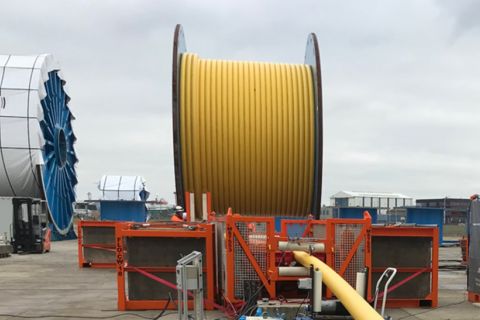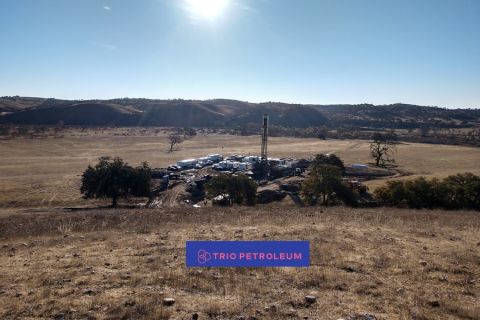Suriname’s state-owned oil company is planning a bond sale next year to finance offshore oil exploration, its CEO said on Aug. 15, as it seeks to capitalize on growing hype over neighboring Guyana’s looming oil boom.
The company, Staatsolie Maatschappij Suriname, would also consider listing some of its shares on the New York or London stock exchanges to help raise between $1 billion and $2 billion to develop its offshore drilling program, the executive, Rudolf Elias, told reporters.
Elias said he was optimistic that Staatsolie or one of its partner companies would strike oil soon.
It is expecting the results of a near-shore prospect well in three weeks, and the United States’ Apache Corp. is set to start drilling next month.
“Once we have that, and we know where to look for oil in our area, I expect that, like Guyana, we will get one find after another,” Elias said in a press conference. “For Staatsolie, but also for Suriname, there are very exciting times ahead.”
Proceeds from the bond sale would be used to finance Staatsolie’s participation in future oil exploration campaigns, Elias told Reuters after the press conference.
Exxon Mobil Corp. has discovered more than 5 billion barrels of oil in neighboring Guyana and expects to start producing next year. Earlier this week, Tullow Oil Plc’s shares jumped 20% after it said it had made a large discovery offshore Guyana.
That has led to optimism that the same formations continue across the border into Suriname, a former Dutch colony with a population under 600,000. Staatsolie has signed production-sharing agreements with Exxon and Tullow, as well as others like Norway’s Equinor and the United States’ Hess Corp.
Suriname has not made any commercially viable offshore oil discoveries so far. Last year, Kosmos Energy abandoned a well offshore Suriname after failing to make a discovery, but said it planned to continue testing the basin due to its potential.
Staatsolie, which operates a 17,000 barrel-per-day (bbl/d) refinery near capital Paramaribo, currently produces an average of 16,383 bbl/d of crude. The company turned a profit of $149 million before taxes in fiscal 2018, it said in a release on Aug. 15.
Staatsolie is also interested in taking over management of a hydroelectric dam that is being transferred to the Surinamese government from aluminum company Alcoa, which has wound down operations in the country.
“We would like to manage it, because it is good for an oil company to have renewables such as hydro in its portfolio,” Elias said in reference to the Afobaka dam.
Recommended Reading
Exxon Mobil Guyana Awards Two Contracts for its Whiptail Project
2024-04-16 - Exxon Mobil Guyana awarded Strohm and TechnipFMC with contracts for its Whiptail Project located offshore in Guyana’s Stabroek Block.
Deepwater Roundup 2024: Offshore Europe, Middle East
2024-04-16 - Part three of Hart Energy’s 2024 Deepwater Roundup takes a look at Europe and the Middle East. Aphrodite, Cyprus’ first offshore project looks to come online in 2027 and Phase 2 of TPAO-operated Sakarya Field looks to come onstream the following year.
E&P Highlights: April 15, 2024
2024-04-15 - Here’s a roundup of the latest E&P headlines, including an ultra-deepwater discovery and new contract awards.
Trio Petroleum to Increase Monterey County Oil Production
2024-04-15 - Trio Petroleum’s HH-1 well in McCool Ranch and the HV-3A well in the Presidents Field collectively produce about 75 bbl/d.
Trillion Energy Begins SASB Revitalization Project
2024-04-15 - Trillion Energy reported 49 m of new gas pay will be perforated in four wells.





